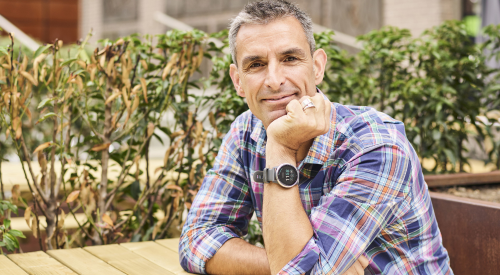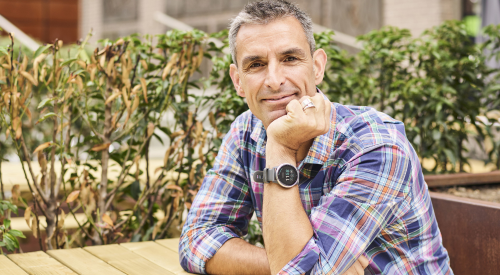
Removing the financial barriers to fertility treatments

As we mark International Lesbian Day one of the pressing issues for those lesbians who want to have children is the inequity in accessing fertility treatment and support.
In 2022, the previous Government published a Women’s Health Strategy promising to tackle this inequity and yet two years on - it remains. International Lesbian Day seems a good time to remind the Government of their commitments; and to make the case once again for equality for all in access to healthcare.
As a gay teenager, my only signpost to a world where LGBTQ+ couples may have children was ‘Jenny lives with Eric and Martin’, the infamous book that was a key catalyst for Section 28, the very reason that Stonewall was set up. Fast forward 35 years and we are thankfully much more aware that families come in all shapes and sizes. Children live in and see diverse families all around them.
In our day-to-day lives, there are children everywhere - on the school run, the weekly shop or playing in parks. It is impossible to go about your day without seeing parents, carers and their children.
We live in a society that implicitly and explicitly expects us all to be heterosexual and to want children. Yet our communities have shown there are many ways to live our lives and to be family.
For some LGBTQ+ people that will involve wanting children and there are many different ways to achieve that goal.
Over the past 20 years we have seen some improvements in law and policy, including the right to adopt for LGBTQ+ couples. This has made it easier, but still there is a long road ahead to ensure that for those of us who do want children, our sexual orientation or gender identity does not determine the choices available to us.
Equality would mean equal access to NHS services including fertility treatment and support, and a broader understanding of LGBTQ+ families.
For lesbian couples, the current reality is that in 90% of integrated health care boards in England require LGBTQ+ couples to self-fund at least six cycles of artificial insemination (Intrauterine insemination or IUI) before they are eligible for NHS IVF treatment. Sometimes this requirement goes up to 12 cycles depending on where you live.
You can find out more about IVF policies in Scotland, Wales, and Northern Ireland in this article.
With each cycle often costing approximately £1,500, this can be prohibitively expensive at the best of times, often running into tens of thousands of pounds. For LGBTQ+ people, this must be financed before even thinking about the costs of IVF itself.
Successfully proving you are infertile is not only a financial burden, but also a physically grueling and emotionally taxing process. And once you’ve been through that, the financial journey of IVF awaits again, emotional, complicated and costly. Add in a cost-of-living crisis and economic uncertainty, and it can become impossible.
Families come in all shapes and sizes and there are many different routes to parenthood. Together we can continue to make the case for change so lesbian couples who want children have equitable access to treatment, services and support.